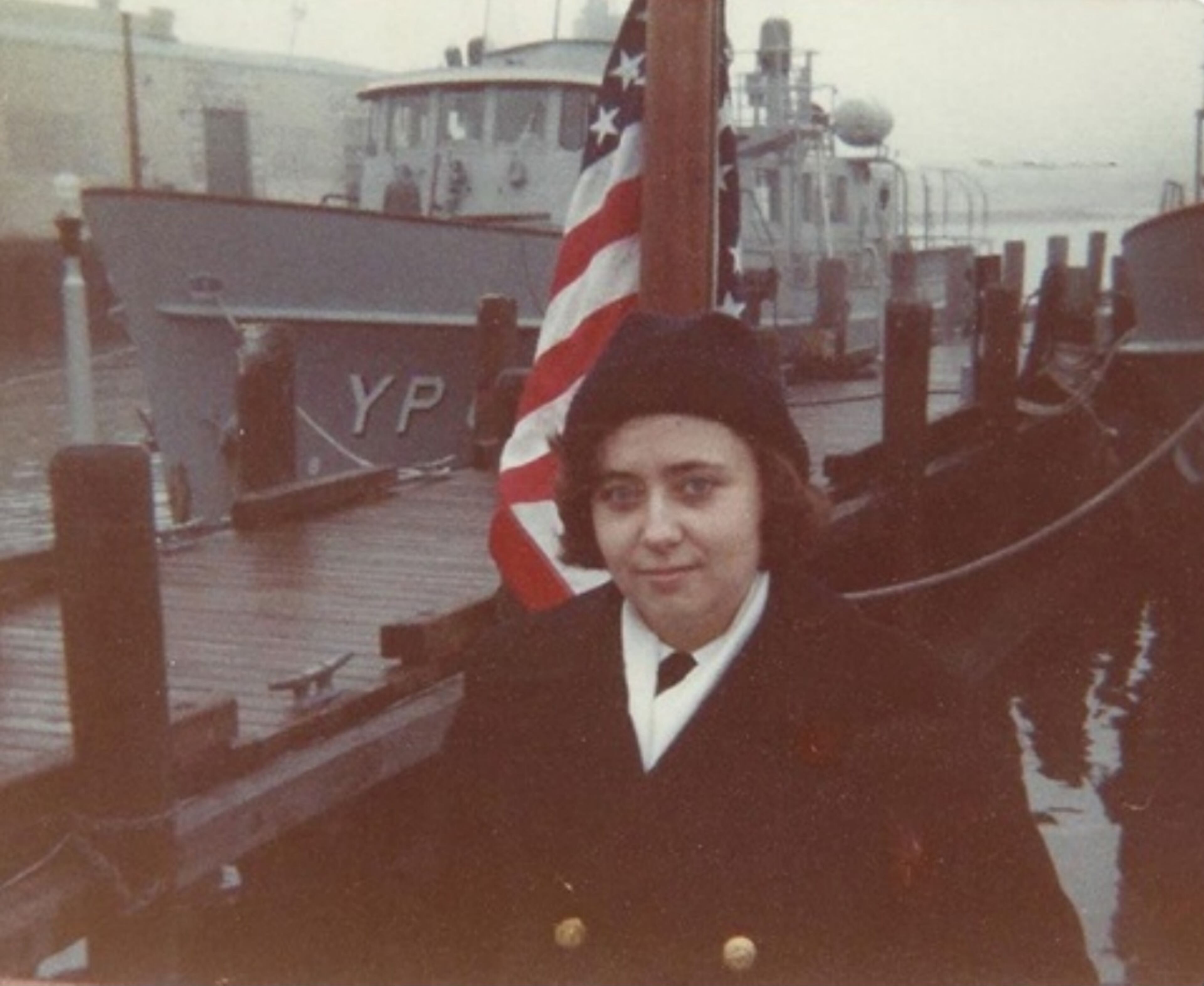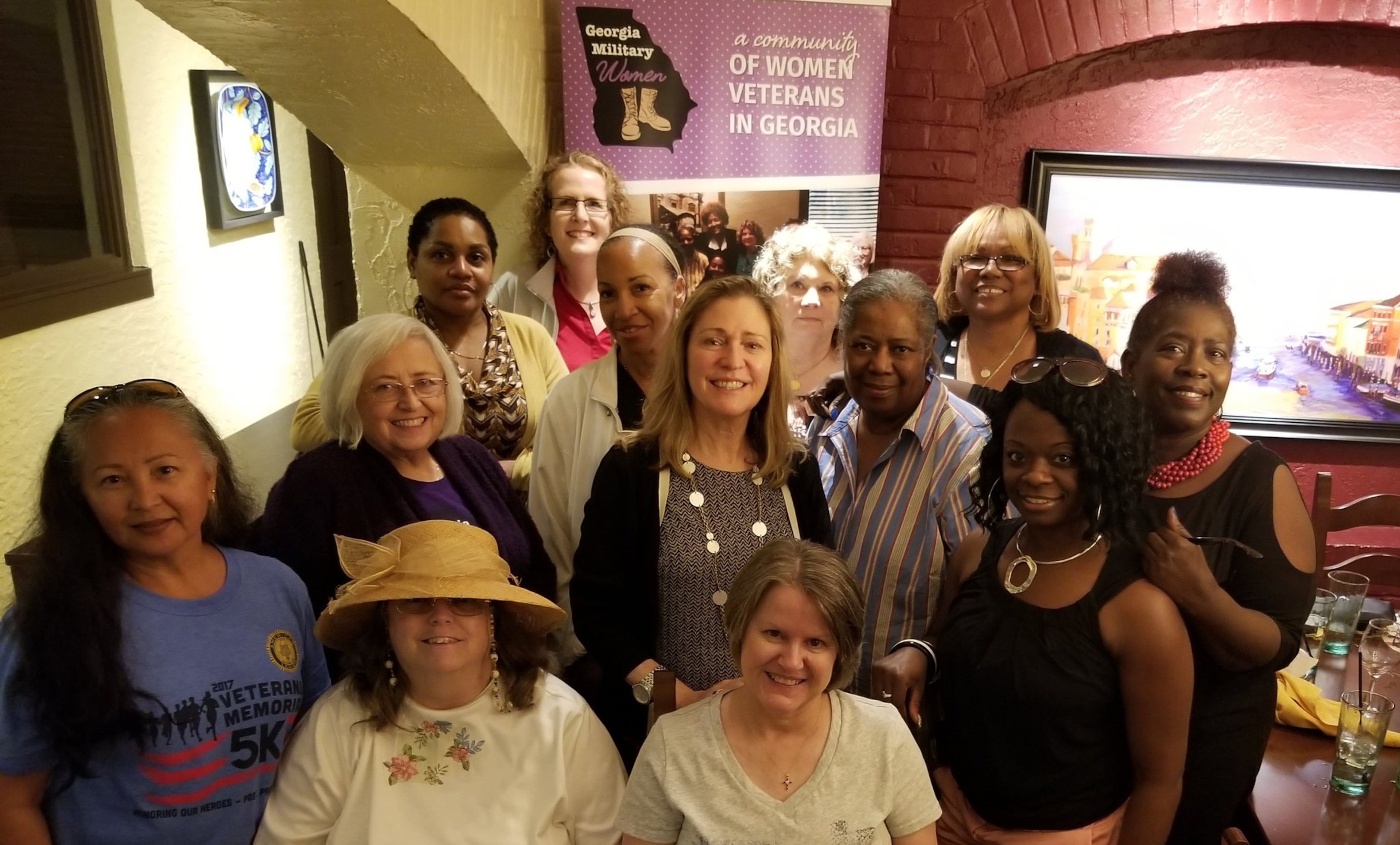Georgia honors women in uniform amid debate over their roles in combat

Amy Stevens stands just under 5 feet. But the former U.S. Navy lieutenant is a giant among advocates for Georgia’s military veterans.
In 2012, the Marietta resident started Georgia Military Women, which describes itself as the largest and most diverse social networking group for female veterans in the state.
Now serving more than 5,000 current and former service members, it eases their transition to civilian life by promoting comradery. It brings them together for meals, walks and theater performances. And it connects them with physical and mental health care.
This effort is part of why Stevens was inducted into the Georgia Military Veterans Hall of Fame this month. She is the only female among the 15 veterans selected for induction this year.
Her recognition comes as Georgia is commemorating female veterans in other ways. This Saturday’s annual Georgia Veterans Day Parade through Midtown Atlanta will honor women in uniform. Meanwhile, a new exhibit at the Atlanta History Center spotlights the hundreds of thousands of women who served the United States in various ways during World War II.
All of this is happening in Georgia amid the continuing debate over women’s roles in the military. U.S. Defense Secretary Pete Hegseth reignited that debate in September, when he told the nation’s general and flag officers that physical standards for combat-related positions must be “gender-neutral.” Hegseth previously said women should not serve in those roles.
“When it comes to any job that requires physical power to perform in combat, those physical standards must be high and gender-neutral. If women can make it, excellent. If not, it is what it is,” Hegseth told the military leaders he had summoned to Quantico, Virginia, on Sept. 30. “If that means no women qualify for some combat jobs, so be it. That is not the intent, but it could be the result.”
The Obama administration opened all military positions to women starting in 2016. In the U.S. Army alone as of May, there were about 6,800 enlisted women and about 3,000 female officers serving in combat branches, including in artillery, armor, infantry and special forces.
Meanwhile, 15% or 101,219 of the 673,358 military veterans who called Georgia home in 2023 were women, according to the Veterans Affairs Department’s most recent figures. The VA has projected Georgia’s female veteran population will continue to grow substantially in the years to come while its number of male veterans will fall.
Stevens said women who meet the military’s standards for combat jobs should be able to get them. Many of her organization’s members are combat veterans.
“Women have always served in combat,” she said. “It is just that you didn’t maybe always know they were there or what they were doing.”

Their War, Too
The Atlanta History Center’s exhibit underscores Stevens’ point. Called “Our War Too: Women in Service,” it says Deborah Sampson disguised herself as a man and served for 17 months in the Continental Army during the Revolutionary War. It also honors Harriet Tubman, who collected intelligence for Union troops during the Civil War. She also helped them carry out an armed raid on Confederate forces in South Carolina, freeing more than 700 enslaved people.
Largely focused on WWII, the exhibit says hundreds of American women died in war-related incidents while serving at the time. Of the 201 nurses who were killed during the war, according to the exhibit, six died in a Japanese kamikaze attack on the Comfort hospital ship in April of 1945. Thirty-eight Women’s Airforce Service Pilots died during the war as well, including 11 during training and 27 on missions.
“The 350,000 women who served in uniform during World War II were all volunteers,” said Kimberly Guise, senior curator and director for curatorial affairs for the National WWII Museum in New Orleans. “They wanted to contribute in any way they could.”
The traveling exhibit started at Guise’s museum on Veterans Day in 2023. The following year, the Georgia Veterans Day Parade’s organizers announced their 2025 event would honor women in uniform.
Stevens plans to participate in the Nov. 8 parade, which will be led by the state’s first female Veterans Service commissioner, Trish Ross.
“I am a big proponent of women being able to serve, not just in the military but in combat roles, if they meet the requirements,” said Ross, a retired U.S. Air Force colonel who served as vice commander of Robins Air Force Base. “The combat standards are the combat standards. It does not matter your gender. If you can meet those standards, you should be able to serve.”

‘Sneaky suicide prevention’
Stevens was born in Augusta, Maine, to an antique dealer and a homemaker. An older cousin who worked as a military nurse in the Vietnam War inspired Stevens to join the U.S. Navy. She saw her cousin as a patriot who helped other people as she served her country.
Stevens enlisted with the U.S. Navy in 1979. She remained on active duty until 1990 before completing a four-year stint with the Navy Reserve.
She was deployed to Alaska and was stationed in Japan and South Korea. Stevens held various jobs in the military, including as a boot camp division officer, an executive officer for a Navy Reserve readiness center and a director of education and training for Navy telecommunications.

Stevens scrambled to make ends meet as a civilian after she received a medical discharge and left the military. Meanwhile, she raised an adopted son on her own. Those experiences inform her advocacy for female veterans today.
A job with the U.S. Labor Department brought Stevens to Atlanta in the 1990s. The death of her mother and an older brother in 2004 caused her to reconsider her plans. She accepted early retirement from the government, went into private practice as a licensed professional counselor and obtained a doctoral degree in counseling psychology.
That career switch prepared her for a job overseeing psychological health for Georgia National Guard troops, a job she held for more than three years.
After she left that position, she started Georgia Military Women on Facebook with 100 female Georgia Guard troops. Today, the group helps its members make new friends and persevere through crises. Some live with depression and post-traumatic stress disorder. Stevens calls her group’s comradery “sneaky suicide prevention.”
“The number one thing for anybody in suicide prevention is having somebody in your life that you can talk to — they understand you,” she said.
Stevens’ selflessness, humility and efforts to help others are big parts of why the Georgia Military Veterans Hall of Fame is honoring her, said Rick White, a retired U.S. Army colonel who leads the nonprofit overseeing the recognition. She is the ninth woman to be inducted, White said.
“We’d like to see more women nominated,” White added.
Cassandra Randolph, an Iraq War veteran and a member of Georgia Military Women, has participated in the group’s trips to Charleston, Panama City Beach and Savannah.
“Being able to have conversations where people actually understand what you have been through — it is refreshing to have that kind of comradery,” said Randolph, a McDonough resident who serves as one of the group’s team leaders. “It helps a lot of the women because otherwise they may not come out and or be engaged socially.”
Now 72, Stevens is delegating more authority to other women like Randolph.
“I am looking for someone to replace me,” Stevens said.
Moments later, she reflected on her induction in the Georgia Military Veterans Hall of Fame, saying: “It is not about me. It is about the group. And getting the award is about the group. It would not happen without everybody doing their part.”




